Eastern Regional Organization for Public Administration
The Eastern Regional Organization for Public Administration (EROPA) was formed "In order to advance the economic and social development of the Region through the promotion of the study, practice and status of public administration and adoption of adequate administrative systems", by international treaty signed in Manila in the Philippines on 19 June 1958.[1] EROPA was officially formed on 5 December 1960.
_Logo.jpg.webp) Logo of the Eastern Regional Organization for Public Administration (EROPA) | |
| Abbreviation | EROPA |
|---|---|
| Formation | 5 December 1960 |
| Type | International non-governmental organization (NGO) |
| Purpose | Public administration and governance education and practice |
| Headquarters | National College of Public Administration and Governance, University of the Philippines, Quezon City, The Philippines |
| Location | |
| Coordinates | 14.656294°N 121.0598308°E |
Area served | Asia Pacific |
Membership |
|
Secretary General | Orlando S. Mercado |
| Website | www |
EROPA is a partner of the United Nations Public Administration Network (UNPAN).[2] EROPA also has special consultative status with the United Nations Economic and Social Council.[3]
The Philippines remains the center for its activities, since having hosted the first Regional Conference on Public Administration 7 to 20 June 1958, with EROPA being based out of National College of Public Administration and Governance, University of the Philippines, Quezon City, Philippines.
In addition to the headquarters in the Philippines, it has four active centers:
- Development Management Center (South Korea) in conjunction with the National Human Resources Development Institute in Gyeonggi Province[4]
- Human Resource Research Center (formerly E-Government Research Center) (China) in conjunction with the Chinese Academy of Personnel Science in Beijing[5]
- Local Government Center (Japan) in conjunction with the Local Autonomy College in Tokyo[6]
- Policy Studies Center (Indonesia) in conjunction with the National Institute of Public Administration in Jakarta.
- Training Center (India) in conjunction with the Indian Institute of Public Administration in New Delhi[7]
Membership
Membership of EROPA is available for states, institutions, and individuals.[8]
State members include:[3]
 Philippines (founding member)
Philippines (founding member) Japan (founding member)
Japan (founding member)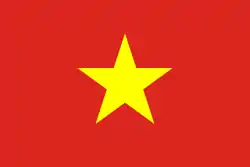 Vietnam (founding member)
Vietnam (founding member)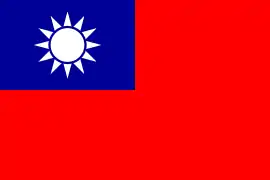 Taiwan (founding member - assumed by
Taiwan (founding member - assumed by  China)
China).svg.png.webp) Australia (founding member, inactive)
Australia (founding member, inactive) Thailand (1961)
Thailand (1961) South Korea (1962)
South Korea (1962) Iran (1963, inactive)
Iran (1963, inactive) Pakistan (1965, inactive)
Pakistan (1965, inactive) Malaysia (1966, inactive)
Malaysia (1966, inactive) Indonesia (1969)
Indonesia (1969) Papua New Guinea (1976, inactive)
Papua New Guinea (1976, inactive)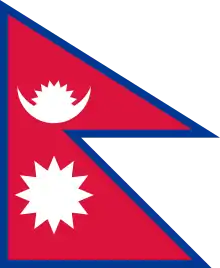 Nepal (1983)
Nepal (1983)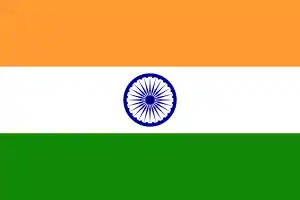 India (1985, inactive)
India (1985, inactive)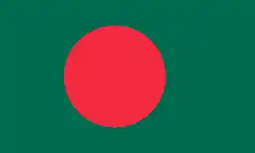 Bangladesh (1995, inactive)
Bangladesh (1995, inactive)
Conferences
List of conferences organized by EROPA (as per their website):[9]
| Topic | Place | Date |
|---|---|---|
| First Regional Conference on Public Administration (formed EROPA) | Manila, Philippines | June 7–20, 1958 |
| Strengthening Local Administration for Economic and Social Development | Manila, Philippines | December 1960 |
| Urban Administration and Economic Development | Tokyo, Japan | October to November 1961 |
| Personnel Management and Administration | Bangkok, Thailand | October 1962 |
| Central Services to Local Authorities | New Delhi, India | October to November 1963 |
| Financing Development | Tokyo, Japan | May to June 1964 |
| Organizing for Development | Seoul, South Korea | November 1964 |
| Technical Assistance | Bangkok, Thailand | January 1965 |
| Asian Consultative Conference on Foreign Service Development | Manila, Philippines | September to October 1965 |
| Administration of Land Reform for Rural Development | Taipei, Taiwan | October 1965 |
| The Role of Public Administration in National Development | Berlin, Germany and New Delhi, India | October to November 1966 |
| Administration of Social Development | Tehran, Iran | December 1966 |
| Administrative Reforms in Asia | Kuala Lumpur, Malaysia | June 1968 |
| Population Growth in Asia | Philippines | April 1970 |
| Administrative Implications of Rapid Population Growth in Asia | Manila, Philippines | May 1971 |
| Curriculum for Development Administration | Bangkok, Thailand | November 1971 |
| Implementation: The Problem of Achieving Results | Tokyo, Japan | October 1973 |
| Asian Development Strategies and the Role of Public Enterprises | Tehran, Iran | October 1976 |
| Reassessment of Public Administration | Indonesia | November 1977 |
| The Management of Integrated Rural Development | Jakarta, Indonesia | June 1981 |
| Social Change and Administrative Reforms Towards the Year 2000 | Seoul, South Korea | October 1983 |
| Local Government and Rural Development | Philippines | November 1983 |
| Delivery of Public Services in National Development | Bangkok, Thailand | December 1985 |
| Power and Social Responsibility: Elections in Asia and the Pacific | Philippines | February 1987 |
| Public Administration in a Changing National and International Environment | Manila, Philippines | November 1987 |
| Public Administration in the 1990s: Challenges and Opportunities | Kathmandu, Nepal | December 1989 |
| Accountability in the Public Service | Malaysia | October 1990 |
| Administrative Reforms Towards Promoting Productivity in Bureaucratic Performance | Beijing, China | October 1991 |
| Decentralization Towards Democratization and Development | South Korea | October 1992 |
| Public Administration and Sustainable Development | Tehran, Iran | November 1993 |
| Comparative Public Sector Reform | Australia | November to December 1994 |
| New Trends in Public Administration for the Asia Pacific Region: Decentralization | Tokyo, Japan | September 1995 |
| Public Administration in Promoting Economic Development | Manila, Philippines | March 1996 |
| Public Service Management: Achieving Quality Performance in the 21st Century | Kuala Lumpur, Malaysia | November 1997 |
| Administration in Transition | Macau SAR, China | October 1998 |
| From Government to Governance | Manila, Philippines | June 1999 |
| Developing Asia’s Public Services: Sharing Best Practice | Hong Kong SAR, China | October 2000 |
| Governance as Partnership: State, Civil Society and Market Organizations | Bangkok, Thailand | November 2002 |
| Public Administration and Globalization: Challenges, Opportunities and Options | New Delhi, India | October 2003 |
| Globalization, Security and Development | Apia, Samoa | October 2004 |
| Role of Public Administration and Governance Stakeholders in Attaining the Millennium Development Goals | Hanoi, Vietnam | October 2005 |
| Modernizing the Civil Service in Alignment with National Development Goals | Bandar Seri Begawan, Brunei Darussalam | November 2006 |
| Service Quality in the Public Sector: An Outcome-Based Approach | Tehran, Islamic Republic of Iran | November 2007 |
| Governance in a Triptych: Environment, Migration, Peace and Order | Manila, Philippines | October 2008 |
| Public Governance in Challenging Economic Times: Human Resource Development at the Battlefront | Seoul, Korea | October 2009 |
| Public Administration and Disaster Management | Kathmandu, Nepal | November 2010 |
| Challenges, Opportunities and Innovations in Public Administration in the Next Decade | Bangkok, Thailand | February 19–23, 2012 |
| Challenges to Administrative Reform: Learning from the Past and in Search of Excellence in the Future | Jakarta, Indonesia | October 28 - November 1, 2012 |
| Enhancing the Quality of Government: Government, Governability and Governance | Tokyo, Japan | October 15–19, 2013 |
| Public Administration and Governance in the Context of Regional and Global Integration | Hanoi, Vietnam | October 19–24, 2014 |
| Modernization of Governance: Reforms and Good Practices in Emerging Markets | Shanghai, China | October 17–21, 2015 |
| iGovernance: INNOVATIVE. INCLUSIVE. INTEGRITY-BASED[10][11] | Manila, Philippines | October 10–14, 2016 |
| The Role of Public Governance in Achieving Sustainable Development Goals: Transforming, Empowering and Network-Building[12] | Seoul, South Korea | September 11–15, 2017 |
| Public Administration in Managing Global Megatrends: People, Public Services, Institutions, and Ethics | Bali, Indonesia | September 16-20, 2018 |
| The Future of Public Administration: Rethinking Resilience, Equity, and Sustainability in the Region and Beyond | Manila, Philippines | September 22-27, 2019 |
Publications
EROPA produces the biannual journal Asian Review of Public Administration (ARPA) since 1989.[13] The organization also produces the quarterly newsletter EROPA Bulletin since 1976.[14]
External links
References
- "Constitution of the Eastern Regional Organization for Public Administration (EROPA), as amended 9 December 1960, ATS 21 of 1961". www3.austlii.edu.au. Retrieved 16 April 2017.
- Network, UNPAN - United Nations Public Administration. "UNPAN Partners". www.unpan.org. Retrieved 16 April 2017.
- "History". Eastern Regional Organization for Public Administration. Retrieved 5 February 2018.
- "NHI". National Human Resources Development Institute. Retrieved 5 February 2018.
- "国际交流". Chinese Academy of Personnel Science. Retrieved 5 February 2018.
- "Local Autonomy College English Pamphlet" (PDF). Ministry of Internal Affairs and Communication. Local Autonomy College, Ministry of Internal Affairs and Communication, Government of Japan. May 2011. Retrieved 17 April 2017.
- "INDIAN INSTITUTE OF PUBLIC ADMINISTRATION - ABOUT". INDIAN INSTITUTE OF PUBLIC ADMINISTRATION. INDIAN INSTITUTE OF PUBLIC ADMINISTRATION. Retrieved 18 April 2017.
- "Membership (active states members)". Eastern Regional Organization for Public Administration. Retrieved 17 April 2017.
- "Conferences". Eastern Regional Organization for Public Administration. Retrieved 16 April 2017.
- "2016 EROPA Conference". www.facebook.com. Retrieved 17 April 2017.
- "EROPA 2016 Conference". Eastern Regional Organization for Public Administration. Retrieved 17 April 2017.
- "EROPA 2017 Conference". Eastern Regional Organization for Public Administration. Retrieved 17 April 2017.
- "Asian Review of Public Administration". journals.sfu.ca. Retrieved 17 April 2017.
- "EROPA Bulletin". Retrieved 5 February 2018.